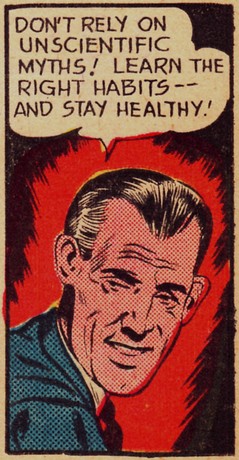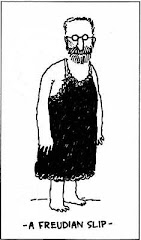 From Associated Content:
From Associated Content:Americans drink more soda now than ever before. In the last 25 years, soda pop consumption in the United States has doubled. Americans drink, on average, 1.6 cans of soda pop daily or 597 cans of soda pop a year! Additionally, 7 percent of Americans' calories come from soda pop. This makes soda pop the largest single source of calories in the US diet, according to one website.
Do you drink too much soda pop? Is it time for you to cut back, or even eliminate consumption of soda? Here are ten reasons to quit drinking soda pop.
#1 Reason to Quit Drinking Soda Pop: Dehydration
Drinking soda with caffeine and sugar causes your body to become dehydrated. Caffeine is a diuretic and causes an increase in urine volume. When you drink a caffeinated soda to quench your thirst, you will actually become thirstier.
#2 Reason to Quit Drinking Soda Pop: High Calorie
Regular soda pop is high in calories. A can of Coke contains 10 teaspoons of sugar, which is 100% of the daily recommended value for adults. An 8 ounce can of soda has around 100-200 calories. Not only are the calories from soda pop empty of any nutritional value, they also deplete your body of vital minerals.
#3 Reason to Quit Drinking Soda Pop: Caffeine Addiction
Caffeine addiction and withdrawal has been recognized as a medical disorder. A study at Johns Hopkins University revealed a few interesting facts about caffeine. "Caffeine is the world's most commonly used stimulant, and it's cheap and readily available so people can maintain their use of caffeine quite easily," says Roland Griffiths, Ph.D., professor of psychiatry and neuroscience at Johns Hopkins. "The latest research demonstrates, however, that when people don't get their usual dose they can suffer a range of withdrawal symptoms, including headache, fatigue, difficulty concentrating. They may even feel like they have the flu with nausea and muscle pain."
#4 Reason to Quit Drinking Soda Pop: Acid
Whether you drink diet or regular soda, the amount of acid in these drinks is enough to wear away at the enamel of your teeth over time. Teeth with weakened enamel are more sensitive and more susceptible to decay. In tests done on the acidity levels of soda, soda was found to have a pH of 2.5. To put that into perspective, consider that battery acid has a pH of 1 and pure water has a pH level of 7.
#5 Reason to Quit Drinking Soda Pop: Save Money
Soda may be pretty inexpensive when compared with fruit juice and milk. You can purchase 12, 8 ounce cans for around $4. However, a person who drinks just 2 cans of soda a day, will pay $206 over the course of a year to keep her soda habit going. If there is more than one soda drinker in the house, or she drinks more than 2 cans a day, that yearly total could quickly double or triple!
#6Reason to Quit Drinking Soda Pop: Lose Weight
Of course "regular" sodas would not help you reach your weight loss goals, but certainly diet soda can be a useful tool in weight management, right? The word "Diet" is right there in the name, after all. Wrong! Researches at the University of Texas Health Science Center found that diet sodas put a person at a higher risk of becoming overweight. According to their research, "artificial sweeteners can interfere with the body's natural ability to regulate calorie intake. This could mean people who consume artificially sweetened items are more likely to overindulge."
#7 Reason to Quit Drinking Soda Pop: Artificial Sweetener Issues
Often the subject of urban legend, artificial sweeteners have been accused of everything from causing headaches to multiple sclerosis and even death. Most artificial sweeteners have over 20 years of research behind them, proving their safety for most individuals. However, consumption of artificial sweeteners may make some people crave more sweet things which will in turn create more cravings for people who are trying to avoid sweet foods for health reasons.
#8 Reason to Quit Drinking Soda Pop: Mineral Depletion
You may have heard of a recent study that showed women who drink cola everyday have a lower bone mineral density. One of the reasons for this could be that most colas contain phosphoric acid and caffeine which drain calcium out of the bones. Also, because caffeine is a diuretic and increases urine volume, more minerals are leaving the body before having a chance to be absorbed and put to use.
#9 Reason to Quit Drinking Soda Pop: Less Chance for Diabetes
While no research has definitively shown that soda pop causes diabetes, the daily consumption of soda pop does create other problems that could lead to diabetes: specifically weight gain. However, according to a researcher from Children's Hospital Boston, the fact remains "when sugar enters the bloodstream quickly, the pancreas has to secrete large amounts of insulin for the body to process it. Some scientists believe that the unceasing demands that a soda habit places on the pancreas may ultimately leave it unable to keep up with the body's need for insulin. Also, insulin itself becomes less effective at processing sugar; both conditions contribute to the risk of developing diabetes."
#10 Reason to Quit Drinking Soda Pop: Soda Replaces Healthier Drinks
In the 1950's, children drank 3 cups of milk for every cup of sweet drink. Today that statistic is flipped: children drink 3 cups of sweet drink for every cup of milk. One of the biggest problems with soda is it acts as a replacement drink for healthier options. Less amounts of milk in the average diet could account for the lower bone density and higher occurrence of osteoporosis in men, women and children.













